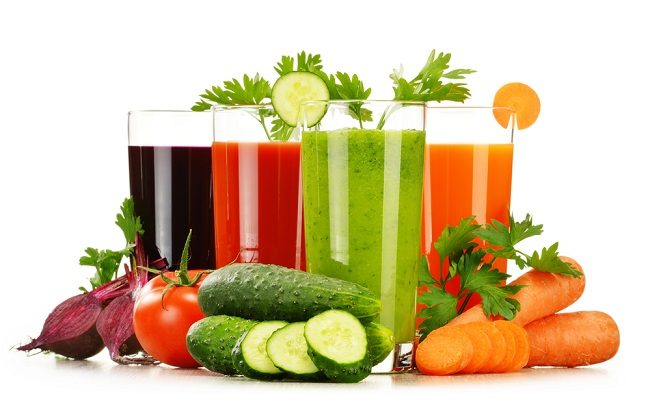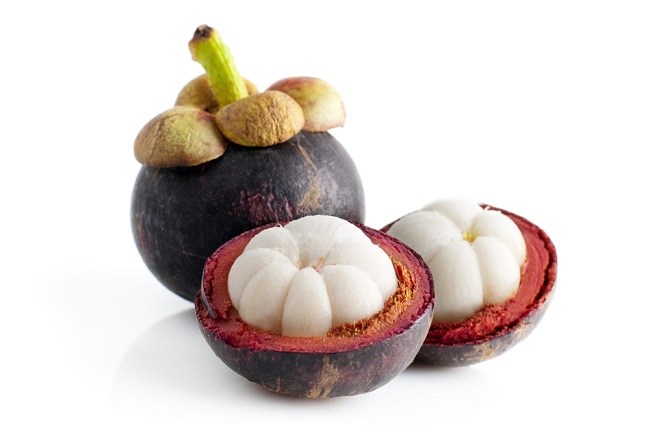Cravings during pregnancy are actually normal. However, if pregnant women tend to want to constantly eat unhealthy foods, cravings can turn into bad things. you know.
In Indonesia, cravings are synonymous with sour, spicy and salty foods, such as young mango, fruit salad, or meatballs. There are also more specific ones, such as meatballs with spicy chili sauce or fried duck with mango sauce. Come on, see if cravings can indeed be explained medically and how to properly respond to them.

Causes of Cravings During Pregnancy
In the early stages of pregnancy, pregnant women may feel morning sickness characterized by symptoms of nausea, vomiting, and refusal to eat. After that, although it doesn't always happen, pregnant women may also start to feel cravings.
The actual cause of cravings is not known for certain, but there are several allegations that some experts are trying to explain, including:
1. Culture
Cravings during pregnancy can occur because this is something that already exists and is believed by local culture. This then becomes a suggestion within Bumil. Cultural factors also influence the type of food that pregnant women usually want.
2. Lack of a nutrient
If pregnant women are lacking a nutrient, this can make the body want more portions of certain foods. For example, chocolate cravings can be caused by a lack of magnesium in the pregnant woman's body. Then, red meat cravings can be a sign of a protein deficiency.
3. Changes in hormone levels
Changes in hormone levels in the body are also said to be the cause of cravings during pregnancy. The reason is, hormonal changes can change the smell and taste of food. Therefore, during pregnancy, pregnant women may like foods that were previously disliked, or vice versa.
4. Changes in the part of the brain
Changes in the uterus that occur gradually are also considered to affect the part of the brain that regulates the sense of taste or tongue. However, this assumption still needs to be investigated further.
5. Diversion
Cravings are also believed to be a diversion when pregnant women want something that should be avoided during pregnancy, such as coffee or soda.
Tips for dealing with cravings during pregnancy are safe
Generally, cravings are harmless if pregnant women can manage them well. Cravings can be a problem if what is consumed is high-calorie foods but does not contain the nutrients needed during pregnancy.
These foods can make pregnant women gain too much weight and become overweight. This of course can cause many health problems during pregnancy.
Here are some ways pregnant women can do so that cravings don't cause health problems:
1. Get used to breakfast
Pregnant women are more at risk of having an irregular and unhealthy diet because of drastic body changes. These changes can affect pregnant women's emotions and self-confidence. Now, Breakfast every day can reduce the possibility of excessive cravings.
2. Exercise regularly
Apart from adjusting the diet, pregnant women as much as possible also exercise regularly. This can have a good impact on the mood and emotions of pregnant women. Now, stable emotions will reduce the desire to eat good food impulsively.
3. Limit sugary foods and drinks
During pregnancy, limit the consumption of sugary foods and drinks as much as possible, especially if you are at risk of developing gestational diabetes.
Pregnant women can divert unhealthy food cravings into healthier foods. For example, when you crave high-fat strawberry ice cream, you can think of healthier alternatives that resemble those foods, such as strawberry yogurt or fresh strawberries.
4. Avoid harmful types of food
Although it is very rare, under certain conditions, pregnant women can crave food that endangers the health of themselves and the fetus. This type of eating disorder is called pica or eat everything.
sufferer pica You can crave all kinds of things that aren't common to eat, such as crayons, detergent, dirt, or chunks of ice from the fridge.
This of course can harm the fetus and should be avoided. Impacts that can occur as a result of pica among others, developmental disorders of children's motor skills, low IQ scores, and hearing loss.
5. Watch your weight
Cravings during pregnancy is not something that is forbidden, but should be limited. To ensure that pregnant women's cravings are still within safe limits, pay attention to pregnant women's weight gain.
Research shows that being overweight during pregnancy can increase the risk of pregnancy complications, such as preeclampsia.
If the pregnant woman's weight before pregnancy is ideal, the recommended weight gain during pregnancy is 11-15 kg. However, if pregnant women are overweight before becoming pregnant, try not to gain more than 11 kg.
By managing cravings during pregnancy, pregnant women can still eat delicious food that they want without causing the risk of health problems. However, if cravings during pregnancy are bothersome or cause drastic weight gain, it is advisable to consult further with your obstetrician.









